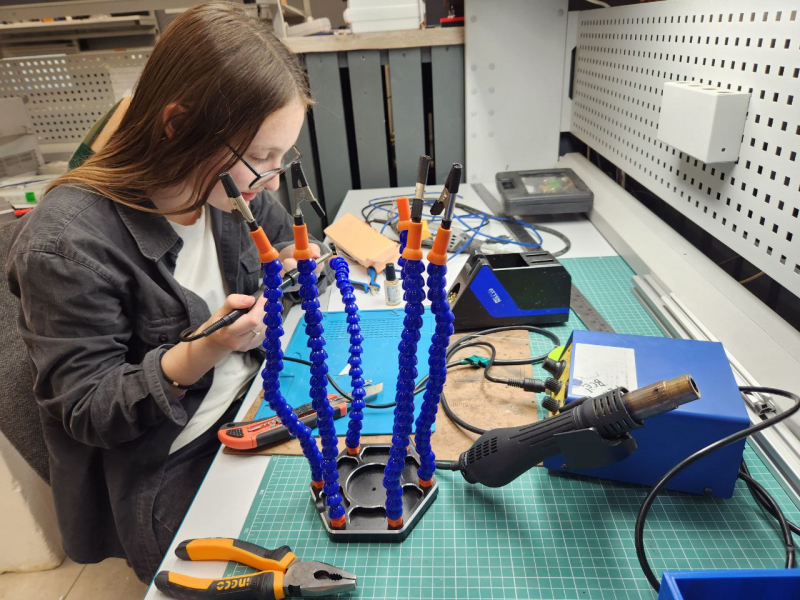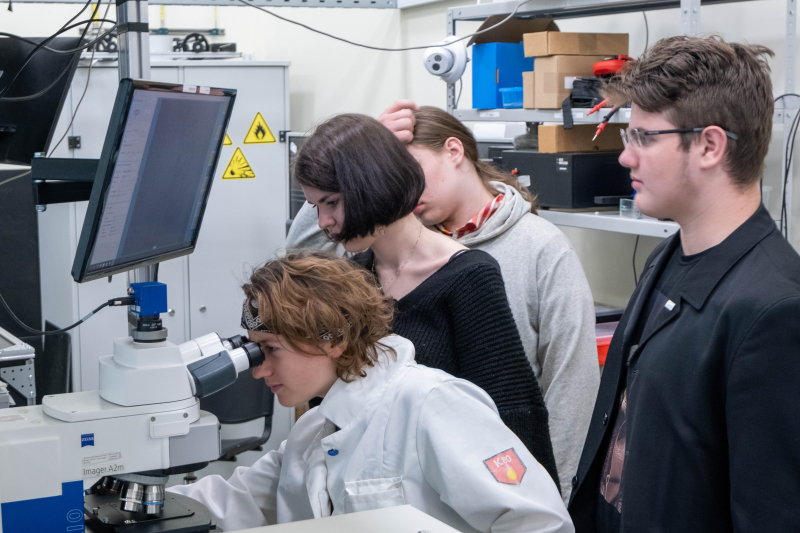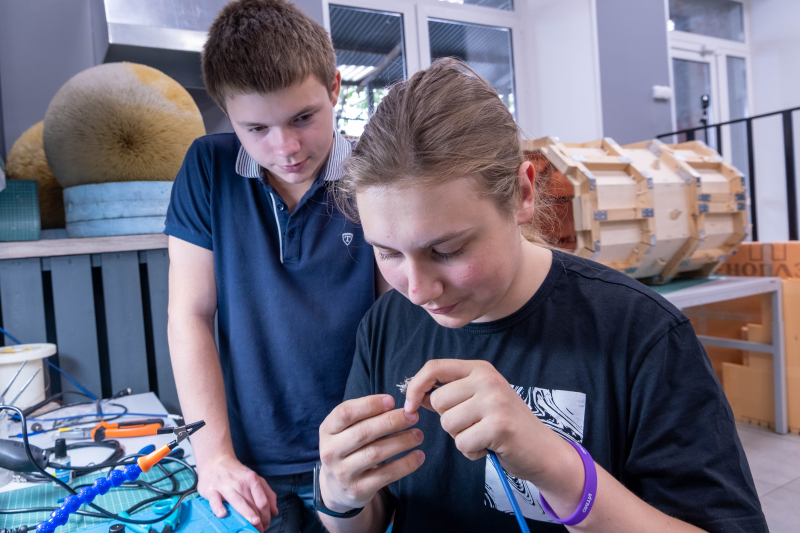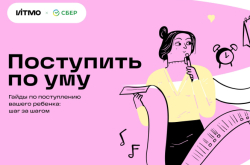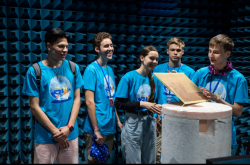Getting the internship
I learned about this opportunity when I was in the 10th grade. Representatives of several universities came to my school, St. Petersburg Lyceum 239, to speak about the opportunities they offer, and I decided to apply.
First, I was invited for a summer internship. For two weeks, we delved into the work of the faculty’s scientists and solved cases in teams under the supervision of researchers. There, I had the chance to experiment with RFID tags in the anechoic chamber. RFID tags are a type of electronic devices that collect, process, and transmit radio-frequency (RF) signals used to identify objects, for instance, during a warehouse inventory. The students who performed best, like myself, were invited for a year-long internship.
Admissions for summer internships are accepted via the faculty’s official website from March to June.
Projects
Before the internship, I had had little exposure to science, so I was ready to work on any topic. I was invited to participate in a project involving the development of heterostructures using 2D semiconductor materials. A monolayer is a single layer of any substance that is one atom thick. Monolayers are commonly used to produce heterostructures with novel properties, as well as high-frequency transistors, optoelectronic devices, lasers, and LEDs for the industry.
I did my internship from September to May alongside studies in my final year at school. I visited the laboratory once a week to acquire new techniques for dealing with monolayers or work with novel materials, from which I then removed monolayers and constructed structures. I also had the opportunity to learn how to operate professional equipment such as a microscope, an ultrasonic bath, tweezers, tapes, and materials.
During my internship, I was involved in experimental research, therefore I needed to be knowledgeable about several chapters of theoretical physics, such as the Schrödinger equation or excision formation, which are above the advanced physics course I took at my lyceum. To get acquainted with these topics, I was given a handful of books to read.
Kseniia Baryshnikova, a senior researcher at ITMO’s Faculty of Physics
A year-long internship at ITMO’s Faculty of Physics is similar to the supervised work experience that senior students have. Working at a lab, high school and university students have to face scientific challenges that have no predefined solutions and the objectives of which often get reshaped along the way. Nevertheless, we tried our best to adapt “grownup” scientific projects for school students, without undermining the work of scientists, while making the project clearer to students.
Outcomes
New skills. The internship allows you to try yourself in the role of an experimental physicist. I learned to use the equipment and “work with my own hands.” As a result of my internship, I was offered to continue my research at the laboratory as a Bachelor’s student and manufacture heterostructures on a regular basis. However, I realized I wanted to try my luck in theoretical physics and to do so, I need more advanced knowledge, which I’m now acquiring at the university.
Wins at scientific conferences. Another result of my internship was a heterostructure constructed of semiconductor tungsten diselenide, which was then employed by ITMO researchers to study quasiparticles. My supervisor and I put my research on paper and submitted it for the International Scientific Conference Sakharov Readings, where I placed first in the Physics category.
Tuition-free studies at the university. After completing my internship, I opted to enroll in ITMO’s Bachelor’s program in theoretical and experimental physics. I got in thanks to my high USE (Unified State Exam – Ed.) score and contest awards.
Currently, I’m discovering a new field for myself – accelerator physics. My supervisor and I are researching the effect of field rotation that occurs when a beam passes through a waveguide with dielectric walls; we are writing a paper on the subject. In the future, our findings will contribute to the development of more reliable, efficient, and compact particle accelerators for advanced research in the field of high-energy physics.
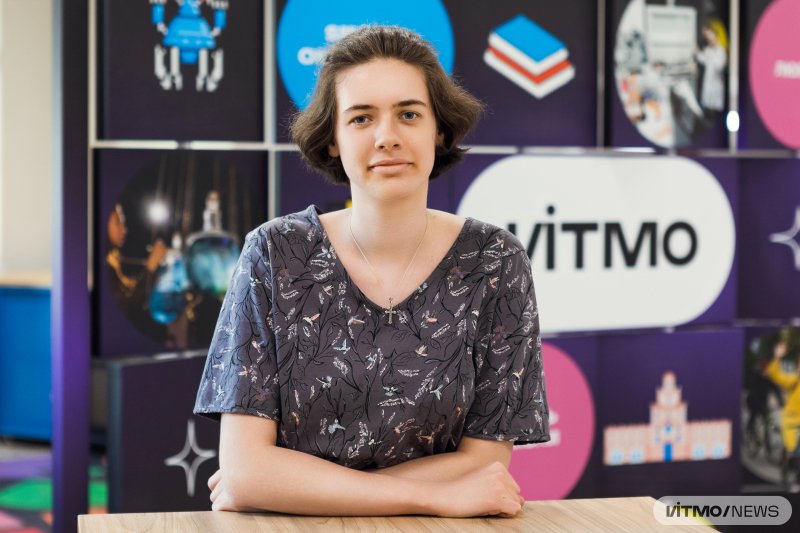
Anna Chuprina. Photo by Dmitry Grigoryev / ITMO.NEWS
More opportunities
School students who intern at the Faculty of Physics frequently become winners and prize-winners of conferences, be it Sakharov Readings, the Congress of Young Scientists, or any other competition. Some wins provide prospective students with enrollment opportunities, such as additional points to their USE scores. Aside from that, interns can submit their scientific projects for the ITMO.STARS contest and if successful, study at ITMO for free.
Advice for future interns
Don’t be afraid to take the first steps into science and try something new. The odds are, while you aren’t likely to make any breakthrough, you will gain experience working with equipment and tackling real-world tasks. Don’t feel ashamed if you don’t know something. You will learn everything you need to know if you simply show interest and make an effort.
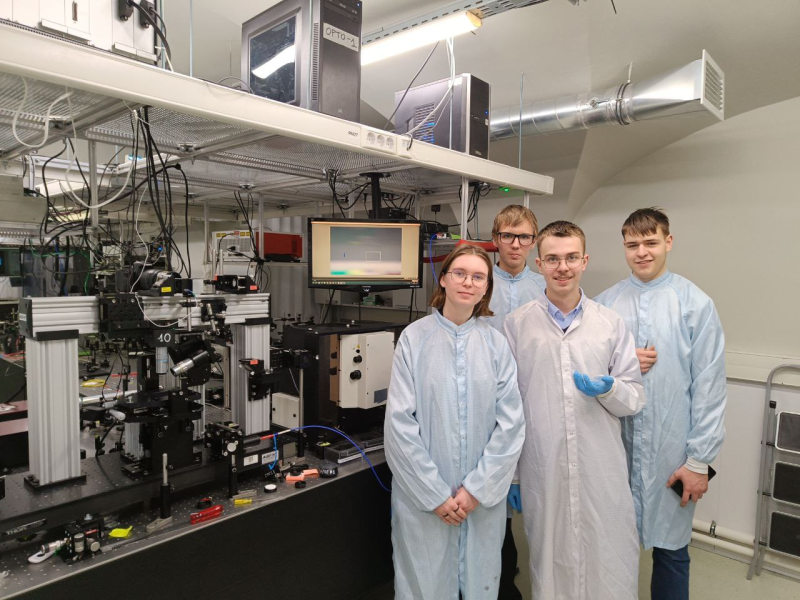
A year-long internship at ITMO’s Faculty of Physics. Photo by Ekaterina Pukhtina
Internships in 2024
The first season of internships at the Faculty of Physics kicked off in 2017 and involved only two students. The format grew more popular over time, and in 2024, it drew over 50 students who defended 20 projects at the end of their internships. Throughout the year, they explored dark matter, created nanostructures, and worked on anti-counterfeit labels and biosensors.
This year, the final presentation took the form of an open conference, bringing together not only interns but also other school students to present their projects. The jury consisted of lecturers and scientists from the Faculty of Physics, as well as guest educators from the city’s major lyceums in physics and mathematics, including St. Petersburg Lyceum 239, St. Petersburg Lyceum 30, and Lyceum “Physical and Technical School.”
“An open project defense is more than simply a reporting event; it is a scientific conference. We wanted to have a lively discussion with the participants rather than a competition, and let them exchange their experiences and talk to experts. Our faculty is open to collaboration with lecturers from other schools, and we will gladly welcome new participants as our internship partners,” noted Kseniia Baryshnikova.
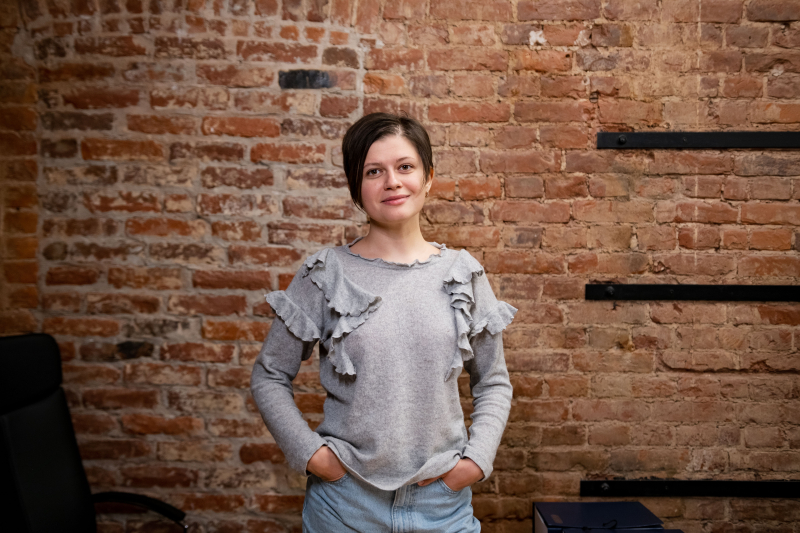
Kseniia Baryshnikova. Photo courtesy of the subject
The internships are supported by the Priority 2030 project Physics 2.0. New Physics Curriculum for Schools and Universities.
